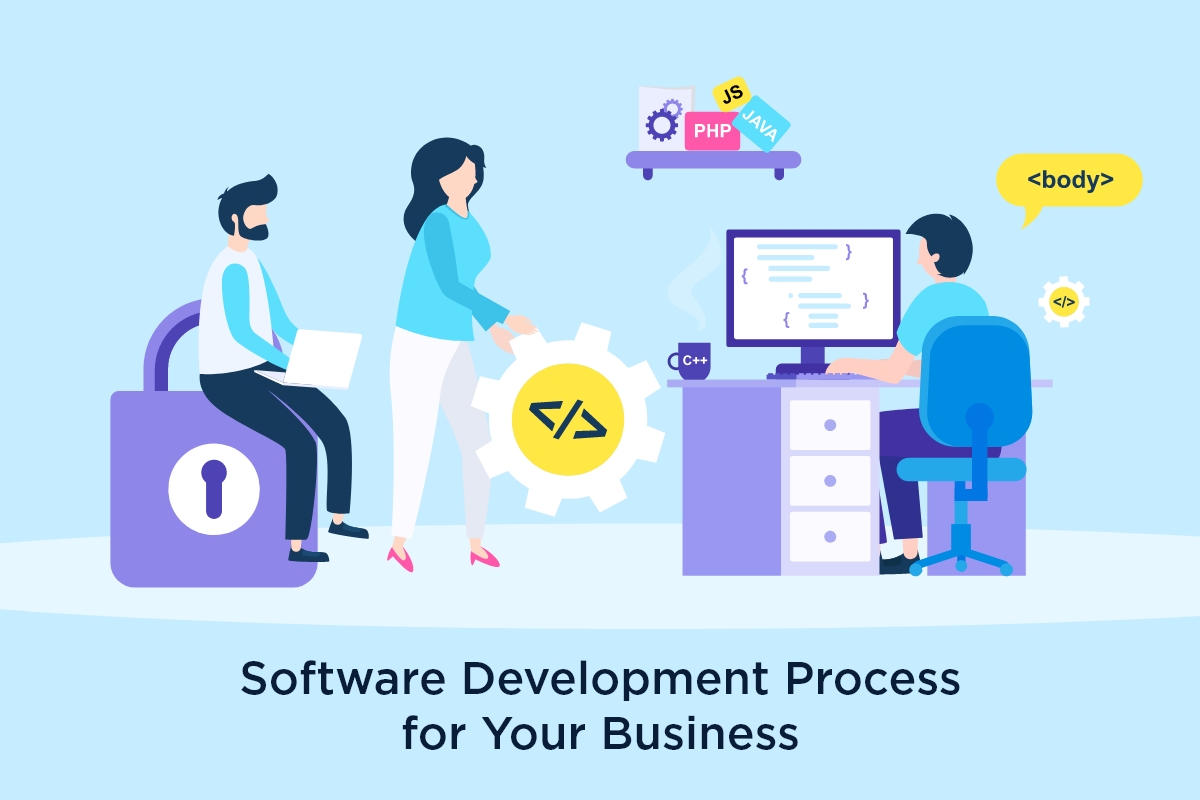MARKETING
How to Choose the Perfect Software Development Process

The success of a software development process is strongly reliant on the development team’s methods. To achieve overall product efficacy, the methodology/processes used must be tailored to the project’s specific needs.
There are several processes/development approaches in the field of software development, each with its own set of benefits and drawbacks. Only by making an educated decision amongst these techniques can effective development, testing, and delivery be ensured.
Let’s take a look at the most popular development methods available today to see which one is ideal for your company.
Agile Development
The Agile method is a solid choice if you want to decrease risks to the point of near-complete eradication. The software development team may avoid flawed code, strained budgets, and the need to modify code when it needs to change if they use the agile process.
Agile development provides an iterative approach in which teams are encouraged to fail quickly and create more quickly. Iterative mini-increments on the program being produced are part of an Agile approach. Frequent scrum meetings, the crystal technique, feature-driven development, and extreme programming help to support these mini-increments, commonly known as Agile sprints.
Pros:
- Incremental releases are made easier with agile software development.
- It has a simple error-checking and bug eradication system.
- The Agile approach ensures that the development process is in sync with the needs of the client.
- It allows for a quick awareness of the software’s advantages.
Cons:
- Because Agile development is based on real-time collaboration, thorough documentation might often take a backseat.
- Adapting to the Agile approach in businesses that are used to the waterfall technique may be tough.
Waterfall Development Method
The Waterfall development approach is the most conventional development process and methodology. This is a rather rigorous paradigm in which each step is separate and follows the preceding one—for example, requirements, design, implementation, verification, and maintenance—with each phase having defined goals that must be met before going on to the next.
Waterfall development allows departmentalization and control. A timetable may be created with deadlines for each step of development, and a product can be guided through the various phases of the development process one by one.
From idea to design, execution, testing, installation, and troubleshooting, development leads to operation and maintenance. Each stage of development must be completed in a specific order.
Pros:
- The waterfall development process is simple to manage since it is linear.
- It’s ideal for projects with a defined goal and consistent needs.
- In the waterfall paradigm, less experienced project managers and project teams can be effective.
Cons:
- The waterfall paradigm may be time-consuming and costly.
- Because of its rigidity, most businesses avoid using the waterfall process.
Rapid Application Development
If you want to build a high-quality system on a tight budget, RAD’s streamlined development approach is the way to go. Developers may adapt to altering needs that are a cornerstone of today’s constantly expanding market sector by implementing RAD.
The steps of the Rapid Application Development method are as follows:
- Gathering requirements
- UI design
- Construction
- Cutover
The building process will continue until the client is completely happy with the finished result.
Pros:
- RAD is ideal for projects with clear business objectives and a specified target audience.
- For small to medium projects with a tight deadline, RAD is the way to go.
Cons:
- Rapid application development necessitates the use of a highly experienced workforce capable of producing error-free results.
- For the company to profit from RAD, the development team must have extensive expertise in the application domain.
Keep the Following Considerations in Mind While Choosing a Development Methodology
- Define Your Target Audience: Adopting the waterfall process is recommended if you are targeting a set of end-users with specific criteria. If your target audience is dispersed and you anticipate post-launch feedback, the Agile technique is the ideal choice.
- Scale and Scope: Scale and scope are crucial factors to consider since they determine how many developers are needed to accomplish the project. Larger projects require more detailed management plans, and the waterfall technique is ideal in these situations.
- Sprint or Marathon Time-Frame: Iterative development projects integrate perfectly within the agile development process. Agile allows for quick progress on time-sensitive development projects.
If you don’t have a deadline for your development project, the waterfall method makes sense.
- Development Team’s Geo-Location: If you’ve enlisted the help of an offshore development partner, constant and clear communication becomes even more important. Agile provides an omnidirectional communication flow that keeps you informed about the status of your development project.
If you’ve decided to outsource your software development project, the Agile technique is your best chance, with regular communication and close-knit teams.
Tips to Hire the Perfect Development Team
When you employ specialized software engineers, the team you choose will determine the success of your development project. We’ve compiled a list of pointers to help you select the ideal development team-
- Assess prior experience: The ideal development resource will have a varied portfolio and validated experience providing project outputs that are similar to your company’s needs. Customer reviews and ranking sites are a fantastic place to start when evaluating a potential development partner.
- Team Strength: Before you choose a development partner, be sure they have the team strength and makeup that your development project requires. Timelines and budgets are crucial considerations when selecting a development partner. To efficiently manage your workforce, you may also utilize CRM Software.
- Development Methodologies and Project Management Processes: Your development partner should be able to manage and deliver a project that is similar to yours in terms of detail, scale, and complexity.
- Consider the Location: Outsourcing can save you a lot of money. However, so that your in-house team can communicate in real-time with your outsourced personnel, you must successfully arrange factors like time management, code quality, and cross-over timings.
- Test Cycles: It’s also crucial to have a thorough awareness of your potential partner’s testing procedures and capabilities. Both QA and testing are critical to your project’s on-time delivery and budget alignment.
Conclusion
Making an informed decision on development procedures is critical to the success of your software development endeavours. Designing, engineering, sustaining, and developing diverse software kinds are all part of software development services, and choosing the right one for your app is a must. Rigid models provide a false feeling of security since future upgrades or corrections might dramatically increase expenses. We are certain that after reading this article, you will be able to make an educated and logical decision about the best approach for your software development project and know which software development services will suit your needs the best.
Source link


















You must be logged in to post a comment Login